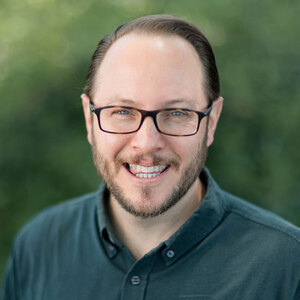In a recent article on The Gospel Coalition website, Trevin Wax narrates three “waves” that have occurred in evangelicalism over the past 50 years:
- Wave 1: Spirit-Filled Worship
- Wave 2: Seeker-Sensitive Church Growth
- Wave 3: Gospel Centrality
After he names these three waves, he suggests that a fourth one has emerged:
Wave 4: Spiritual Formation?
As he looks across evangelicalism, Trevin sees spiritual formation as a new kind of wave that cuts across denominational boundaries. Unlike the other movements, which were more explicitly reactionary, the spiritual formation movement, on his reading of it, is positive. This positive focus is on practices and habits that will aid one’s growth in virtue and character.
What is interesting about this wave is that it started 45 years ago. Much of what Trevin notes about its positivity comes from this fact, I think. Even John Mark Comer’s new book, Practicing the Way, is, in his words, a summary of the spiritual formation movement up until this moment. After all of the church splits, abuse, pastoral sin, and failure, it seems like a generation is awakening to the very questions that helped start this conversation 45 years ago. Before we were bearing sick fruit from a sick tree, there were folks warning us what would happen when we stopped expecting people to become like Jesus.
I am particularly interested in the various waves Trevin names, because they have deeply impacted me in one way or another. My whole family became Christians at Willow Creek Community Church, at the heart of the Seeker-Sensitive movement, and my father became a pastor there. As a Jonathan Edwards scholar, I was very interested in the Gospel Centered conversation. I am also an elder in a Gospel Centered church where I preach monthly. But equally impactful has been spiritual formation. Thirty years ago, I was introduced to the spiritual formation conversation by my pastor, John Ortberg, and it has been a continual area of my study, teaching, and ministry for the past 20 years.
I came to the Institute for Spiritual Formation at Talbot School of Theology, where I am now a professor, back in 2005, several years after this institute was established. When I first started, I was coming right out of an undergraduate degree in the Bible and a masters in New Testament, and my main worry concerned whether or not the spiritual formation conversation was biblical enough. I came to realize that there wasn’t a neglect of scripture in the conversation, but there was a major lacuna theologically. In fact, my own reason for doing a PhD in theology was to address this neglect.
What made my training at the Institute for Spiritual Formation unique, was the focus on spiritual theology. Our primary focus is not on spiritual disciplines, because we do not believe that spiritual formation is ultimately about you and your formation. Spiritual formation is about God, and abandoning your life to God. We do talk about habits, virtues, vices, the work of the Spirit, and the nature of Christian maturation, but we do so in light of who Christ is, what he has done for us, and what it means to have life in him. In other words, what is needed today is not merely a discussion of practices, but a real spiritual theology fueled by a distinctively Protestant and evangelical vision of the Christian life. (I am currently explaining what this evangelical vision looks like, what I call a Word-Centered, Spirit-empowered, whole-life spirituality, at my substack and podcast.)
The goal of this kind of spiritual theology is to coordinate our doctrinal beliefs, such as the Trinity, Christology, justification by faith, union with Christ, etc., with the whole-life spiritual vision of evangelicalism that was as church-centric as it was Gospel-centric. This shared tradition cuts across normal denominational boundaries and theological debates, such that someone like John Wesley would reproducing works by Reformed thinkers like Jonathan Edwards. On the ground – in the lived reality of life with God – their visions were remarkably similar and mutually reinforcing.
The spiritual formation conversation is an important one, because while every Christian should believe in the work of the Spirit to form us increasingly into the likeness of Jesus, few have articulated that vision for the church, or even for themselves. In that unspecified space, folks often insert fleshly and moralistic means of growth, replacing a distinctively Christian vision of spiritual formation by its worldly counterpart. This is why we need a spiritual theology that does more than protect us from what we’re afraid of, but that casts a robust vision for life with God in this present evil age.
But not everyone is enthusiastic that this conversation will lead us faithfully, and Trevin shares some of his own worries about all of these waves. The question then, in light of this, is how do we faithfully respond to waves in the church that are broken, imperfect, and fragmented? As I argued in a talk for The Gospel Coalition, Jonathan Edwards already addressed the way we are supposed to relate to waves that emerge in the church, even when they have excesses, mistakes, and even heretical beliefs. This was true of the very revivals that Edwards defended. We don’t reject movements because of these things, Edwards argues, because we can trust that wherever God is at work, Satan will be there to mimic it, undermine it, and warp it. Instead, like Edwards’s The Religious Affections, we need to address these false ideas with a spiritual theology that articulates the work of the Spirit, the experience of the Christian, and a theological grounding that helps us expose these errors for what they are.
In an age like ours, where self-help, therapeutic ideals, and personal growth drown-out anything resembling life in Christ by the Spirit, what we need is a Word-centered, Spirit-empowered, whole-life spirituality. We can find this in our own tradition, but theological faithfulness is not simply repeating what people before us have said. Rather, we need to do the kind of work they did, pulling together biblical, theological, practical, and spiritual insights to articulate the Christian life in its fullness. If you’ve never seen a spirituality like this, I give an overview in my book Formed for the Glory of God: Learning from the Spiritual Practices of Jonathan Edwards. If you want to consider being trained in this kind of theology, check out the Institute for Spiritual Formation at Talbot School of Theology, Biola University.
Kyle Strobel is an associate professor of spiritual theology at Talbot School of Theology, Biola University. He is the co-author of the book Where Prayer Becomes Real: How Honesty with God Transforms Your Soul (with John Coe) and The Way of the Dragon or the Way of the Lamb: Searching for Jesus’s Path of Power in a Church that has Abandoned It (with Jamin Goggin). Subscribe to Kyle’s Substack for free here to receive regular posts about Word-Centered, Spirit-Empowered, Whole-Life evangelical spirituality.
 Biola University
Biola University.jpg)

.jpg)

.jpg)
.jpg)